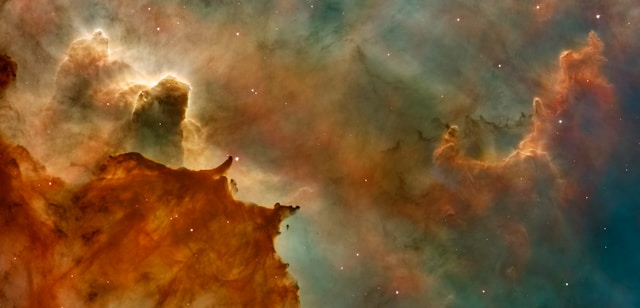 https://unsplash.com/@nasa
https://unsplash.com/@nasa
In
some mysterious way, the universe was expecting us.
The universe, vast and
incomprehensible in its scale, seems almost inexplicably fine-tuned for life.
From the delicate balance of gravitational forces to the exact properties of
atoms, the conditions that permit life are staggeringly precise. But what compels
the universe to produce the components perfect for life?
Consider the concept of
fine-tuning in cosmology. The universe operates within a narrow range of
physical constants that allow for the existence of life as we know it. One such
constant is the gravitational constant (G), which governs the force of attraction
between masses. The number "N," approximately 10^36, describes the
ratio of the strength of gravity to the electromagnetic force between atoms. If
this number were even slightly smaller or larger, the universe would either
collapse under its own gravity or expand too rapidly for stars and galaxies to
form. Without these structures, life would not exist. The fine-tuning is so
precise that any deviation in this gravitational force would render the
universe inhospitable.
Now, consider Planck's
constant (h), which dictates the behaviour of particles on the quantum level.
Even a minuscule variation in this constant would radically alter the behaviour
of atoms and molecules, potentially preventing the stable formation of matter
itself. Likewise, if the speed of light (c) were altered, the balance between
energy and matter would shift, destabilizing the processes that allow stars to
burn and planets to form. These constants are not arbitrary; they fall within
an incredibly narrow range, and any fluctuation would make the existence of
complex life impossible.
Then there are you and I.
The human body, composed of trillions of cells, relies on molecular and atomic
interactions so complex that they defy chance explanation. What compels the
molecules within us to assemble into intricate structures like the eye, the
brain, or the nervous system? Evolutionary biology provides part of the answer,
but even within that framework, we are left in awe of the staggering
complexity. Consider the formation of the human eye—a process that requires the
precise coordination of proteins, enzymes, and DNA to form a functioning organ
capable of receiving and processing light. The probability of these processes
arising by pure chance is astronomically low.
Moreover, we must
consider not only the physical structures but also the phenomenon of
consciousness. What compels our brains to produce minds capable of
self-reflection, language, and abstract thought? No other creature on Earth
possesses the capacity for moral reasoning, artistic expression, or the ability
to contemplate its own existence. Neuroscience has begun to unravel the
biological mechanisms behind consciousness, yet the "hard
problem"—why we have subjective experiences at all—remains elusive. Why do
we admire flowers, landscapes, and beauty? Why can we learn any language from
birth? These abilities suggest that there is something more than mere survival
at work. It all makes little sense unless someone—or something—knew we were
coming.
This leads us back to an
age-old question: why does the universe exist in such a way that life, and
particularly human life, is possible? While science can describe how the
universe operates, it struggles to answer why these conditions exist in the
first place. The remarkable precision of these constants, coupled with the
emergence of intelligent life, suggests purpose, a design, or at the very
least, a deep mystery.
Consider the words of an
ancient shepherd boy, contemplating the heavens thousands of years ago:
"When I consider your heavens, the work of your fingers, the moon and the stars, which you have ordained, what is man, that you think of him? What is the son of man, that you care for him?" —
Psalm 8:3,4
The Psalmist's awe
reflects our own modern wonder. In an era where science has revealed the
vastness of the universe and the delicate balance that sustains life, we are
still left grappling with the same fundamental questions. The cosmos does not
need to be this finely tuned, yet here we are, marvelling at its beauty and
complexity. Perhaps, as the Psalmist suggests, we are more than accidental
by-products of the universe. Perhaps we are here because the universe was, in
some mysterious way, expecting us.

